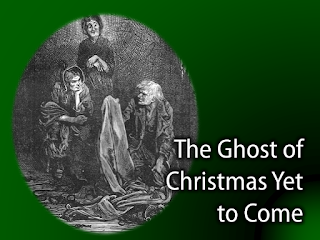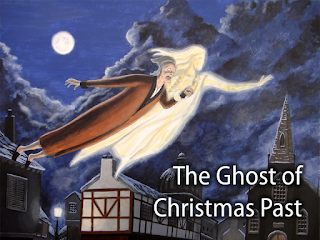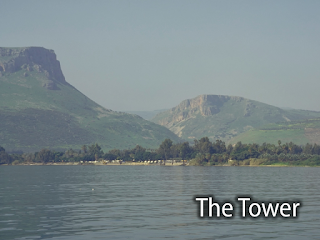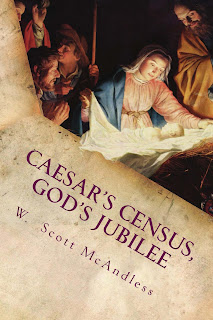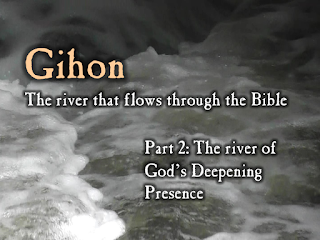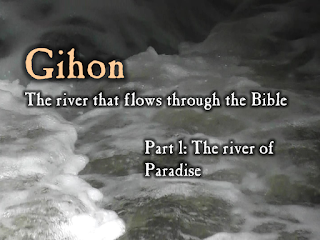Hespeler, 4 December, 2016 © Scott McAndless – Communion
Luke 6:37-45, Psalm 72:1-7, 18,19, Deuteronomy 15:7-11
hat was the best Christmas dinner that you ever had? How would you describe it to me? I bet that if we were to put that question out as a general survey, we would get a great variety of answers. Some would speak of dinners from long ago, even from when they were small. Others would speak of one from recent memory. You would hear of menus and guest lists and decorations.
But if you really pressed people to say what made it truly special, they would go beyond speaking of those things. They would start to speak of something very hard to describe: a warmth, a sparkle, a glow that somehow made the gathering that special – the kind of thing that is hard to pin down but that makes all the difference.
It would be much the same thing if I were to ask you to describe to me your very best memory of a Christmas morning. There would be some who would focus on the presents that you received or perhaps that you gave. Others would focus on the people who were there, but most would talk about something that gave a special shine to everything that happened.
That thing – that undefinable quality – is what is sometimes called the Christmas Spirit or even the magic of Christmas. It is a shared attitude that somehow has the ability to take fairly ordinary things – food, interactions, words – and make them truly exceptional. I am sure that every single one of us has felt that Christmas spirit at least one time or another, but we would be hard pressed to describe it exactly or to force it to appear when we wanted it to.
There have been various attempts to portray this Christmas Spirit down through the years. Sometimes I think that, more than anything, that is what Santa Claus is – an attempt to draw a picture of Christmas Spirit. But, as much as I love Santa and what he represents, I think that someone else actually succeeded better in portraying what it is all about: Charles Dickens.
In his classic tale, A Christmas Carol, the secon d ghost that visits Scrooge after midnight is called the Ghost of Christmas Present. But I would suggest to you that, more than anything else, he is a representation of the Christmas Spirit itself – a Christmas spirit that is reborn every twenty-fifth of December.
The ghost wears a simple green robe, bordered with white fur that hangs loosely about its bare chest. Its feet are also bare and on its head is no other covering than a holly wreath. Its face is clear and joyful and girded round its middle is an antique rust-eaten scabbard that contains no sword.
Most interestingly, however, as the ghost conveys Scrooge upon his nocturnal journey, he bears with him a flaming torch. The purpose of this torch is not merely to cast light upon the things that they are seeing but to produce a special incense. We discover the power of this incense as Scrooge and the Ghost visit a shop where the poor folk of the city have brought their Christmas dinners. These people are so poor that they do not have the means within their dwellings to cook and so they bring their dishes to a “Baker’s Shop.” I’m guessing, that these meals are pretty poor and simple fare.
But, as Scrooge watches, the ghost (who is invisible to everyone but him) delights himself by lifting the cover off of each dish and sprinkling it liberally with the ash from his torch. It is an odd vision, but the meaning of it seems clear. The ash represents the power of the spirit of Christmas to transform. As the story continues, it becomes clear that the ghosts cannot just transform simple meals into Christmas feasts, it can also transform ordinary interactions into signs of peace on earth and goodwill to all and ordinary gatherings into joyous signs of the kingdom of God. And Christmas does have this power. I know that we have all experienced it at some point or another in our journey through Christmas past and present.
I think that there is a spiritual truth to be found in this. Our tendency as human beings is to judge the value of the people and things that we see. When we do this, we tend to look at the surface of things. We’ll focus, for example, on the actual contents of the Christmas meal and how it was cooked, to judge how good it is. The torch of the Christmas Ghost reminds us that we must look deeper than the surface.
Jesus would remind us of the same thing. “The good person out of the good treasure of the heart produces good,” he taught “and the evil person out of evil treasure produces evil; for it is out of the abundance of the heart that the mouth speaks.” His point is that you really cannot judge anything unless you can see the heart and not merely the surface of things.
This is, of course, why Jesus taught that we should not judge at all. We are so inclined to look at the surface of things that we are blind to what really matters. Jesus suggested, wisely, that it is better to leave the judging up to God who can see the heart in all matters.
But the lessons that Ebenezer Scrooge learns from the Ghost of Christmas Present are not limited to finding that warmth and joy of Christmas by looking to the heart of things. There is also a very dark and negative side to what he learns. Scrooge hasn’t just missed the joy of Christmas, he has also actively participated in judgement against the people of his city.
Near the beginning of A Christmas Carol, two men enter Scrooge’s offices asking for his support in their charitable efforts on behalf of the poor. Scrooge’s answer is quite memorable. “Are there no prisons?” he wants to know. And he inquires likewise of the Union workhouses, the Treadmill and the Poor Law. These were the means by which England, in that era, dealt with poor – basically by punishing them for their poverty.
The assumption you see (and this is an assumption that Scrooge himself clearly makes) is that the poor are responsible for their own misfortune – that they are poor because they have chosen to be idle. Thus Scrooge dismisses them by saying, “I don’t make merry myself at Christmas and I can’t afford to make idle people merry. I help to support the establishments I have mentioned – they cost enough; and those who are badly off must go there.” When the kind-hearted gentlemen inform Scrooge that some people would rather die than go to such places, Scrooge replies, “If they would rather die, they had better do it, and decrease the surplus population.”
I wish I could say that Scrooge was the only one to take such a cold-hearted attitude towards the poor, but I think that you know that such an attitude has far from disappeared since his days. In some ways, I would say, it is an attitude that is only on the rise in our times. And, what’s more, such an attitude does make a certain amount of sense. If you only look at the appearance of things – if you see someone not working (or not able to get a well enough paying job) it is easy to come to the conclusion that it must be because of some deficiency on their part – they haven’t tried hard enough or lack a work ethic. It is also the easiest conclusion to come to because it means that their problems don’t really have anything to do with you.
But, as I say, it is only possible to think that when you look at the surface of things. Once you begin to see the heart of the people involved, you begin to realize that the causes of poverty are much more complicated than that and, what’s more, our own fates are much more intertwined with the fates of the poor than we ever suspected.
It is Scrooge’s visit to the family of his clerk, Bob Cratchit, that makes it impossible for him to only look at the surface of that family’s poverty and troubles. In particular, his heart becomes drawn to the Cratchits’ young son, Tiny Tim, whose health is so poor that Scrooge asks the ghost whether he will live for long. The answer is far from encouraging which leads Ebenezer to beg for a different outcome. The ghost turns the old miser’s cold words back on him: “What then? If he be like to die, he had better do it, and decrease the surplus population.” When you begin to see the heart instead of the surface of things, you realize how cruel our normal manner of thinking is. Scrooge is appalled at himself as we should be too.
Scrooge’s final exchange with the Ghost of Christmas Present is the most disturbing. He detects two figures that are hiding underneath the skirts of the ghost. They are two children: a boy whose name is Ignorance and a girl whose name is Want and they are in an abominable state. They are, the ghost informs him, the children of all humanity and their terrible state isn’t just a threat to themselves but, if they are not saved, they will bring destruction on all humankind.
“Have they no refuge or resource?”Scrooge cries out and in reply, the Ghost simply turns his own words back on him again: “Are there no prisons? Are there no workhouses?” Scrooge falls into despair, not only because the ghost forced him to look at the heart of matters but, by looking to the heart, he has come to realize that the plight of the poor is not just their problem but that it is a problem that affects all of us and threatens to doom us all. Want leads to ignorance and ignorance is deadly. If you let enough of the people fall into ignorance, they become a force in society. They will support tyrants and demagogues. Ignorance breeds more ignorance and it all spirals out of control. Scrooge has realized that the plight of the poor and forgotten ishis own plight as well.
Dickens didn’t invent this idea, of course. The Bible recognized first that the plight of the whole of society is connected to the plight of its poorest members. That is why, in the Book of Deuteronomy, Moses instructs the entire nation by saying, “Give liberally and be ungrudging when you do so.” This is not merely for the sake of those who are poor but for the blessing of all: “for on this account the Lord your God will bless you in all your work and in all that you undertake.” There will always be poor among us, Moses warns us, the problem of poverty will never entirely go away, but God actually brings good out of it by creating an opening to blessing for all of us.
Jesus echoes this idea when he teaches his followers and says, “give, and it will be given to you. A good measure, pressed down, shaken together, running over, will be put into your lap; for the measure you give will be the measure you get back.”
The Ghost of Christmas Present teaches Scrooge a vital lesson. It teaches him that, by looking only at the surface of things, he has effectively blinded himself to the truth that surrounds him – the truth about what lies in the heart, especially in the hearts of the poor and forgotten, and the truth about how connected we really are.
Christmas is a time when this habitual blindness is set aside. I have been amazed, for example, at the generosity that has been on display in this congregation and community over the last couple of weeks. You may have heard the story of a refugee family that showed up here about two weeks ago. It was the first real cold day of winter and they had sent their children to school that morning without any winter clothes because they just didn’t have any. We took them down to Hope Clothing and gave them as much as we could immediately and when there were a number of things still needed an urgent message was put out on Facebook.
Do you realize that that message was shared 18 times that we know of and quickly seen by over 3000 people? And the response that we saw to that need was overwhelming both to our volunteers and to the family. People want to be generous. They want a way to look past the surface of the Syrian Refugee Crisis (which is a complex mess) and look to the heart of the people involved. Christmas is one good reason why they were willing to do that and the transforming power comes when we learn to see like that all year long. Dickens understood that. More importantly, so did Jesus.
Will you allow the spirit of Christmas to transform you, not just during this Christmas Present but through the whole year that God places before you?
140CharacterSermon From Ghost of Christmas Present, Scrooge learns to see the heart & not to judge by appearance. This is a gospel lesson.
